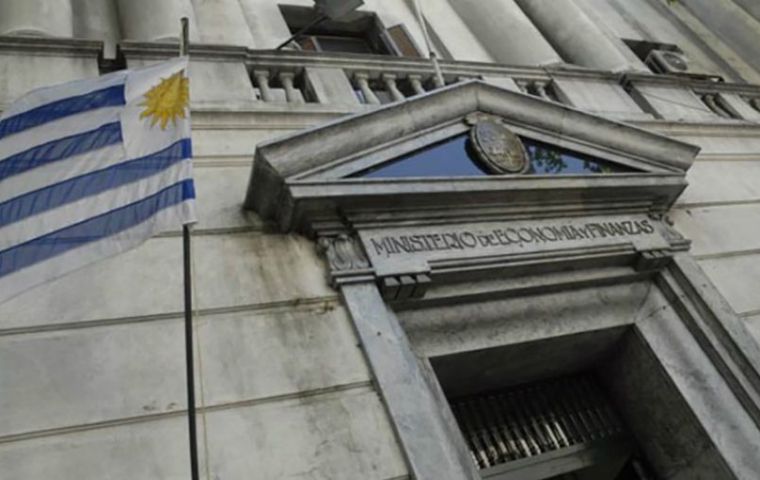MercoPress. South Atlantic News Agency
Uruguay, “cooperating jurisdiction” of EU
 There are no color lists in the EU, said the MEF
There are no color lists in the EU, said the MEF After reports Tuesday announced the reinstatement of Uruguay and also Costa Rica by the European Union to the “grey” list of tax havens, Montevideo was quick to reply all the EU had done was ratify “the status of Uruguay as a cooperating jurisdiction.”
The term “grey list” refers to countries that do not meet European standards in terms of transparency criteria and exchange of tax information.
“As of today, Uruguay was declared a cooperating jurisdiction before the European Union (EU) with commitments assumed before the said body. It is important to mention that the entry of our country into this category responds to additional requirements by the Group of the EU Code of Conduct for Uruguay, which in no case respond to regulatory changes implemented from 2020 to date,” said Uruguay's Ministry of Economy and Finance (MEF) in a statement.
The MEF added that “there is no grey list or any colour list within the EU framework”, but “what exists is a list of non-cooperating jurisdictions, in which Uruguay is not and was never included from 2017 to now.”
“On July 27, 2021, Uruguay sent a note to the EU, stating its commitment to adjust new requirements made by the end of 2022, and reiterates its willingness to cooperate on issues of good tax governance,” the MEF added.
“Throughout the year 2020, various questionnaires were answered regarding the Uruguayan tax system and, in particular, about the territorial tax regime applied by Uruguay. That was what was evaluated to ratify the condition of cooperating jurisdiction,” the statement went on.
“As a result of said evaluation, the EU sends a note dated June 7, 2021, to the Ministry of Economy and Finance, in which it acknowledged that our country has fully complied with standards internationally accepted, as well as in aspects related to fiscal transparency,” the MEF added.
And “in 2017, the EU made the first List of Non-cooperative Jurisdictions, in which Uruguay was listed as a cooperating jurisdiction (the same category as now), with certain commitments assumed before the EU in terms of transparency and tax justice,” the Ministry also explained.
Meanwhile, Uruguayan economic authorities also announced Tuesday that inflation in September had reached 0.46%, which brought the accumulated yearly variation to 6.69% and the accumulated year-on-year to 7.41%, above the target range set by the government of 3% to 7%.
In September 2020 inflation had been 0.64%, while the accumulated for the year was 8.68% and 9.92% YoY.
According to the INE, the main incidents in the monthly variation of the index come from food and non-alcoholic beverages (0.15%), housing (0.05%) and restaurants and hotels (0.13%).




Top Comments
Disclaimer & comment rulesCommenting for this story is now closed.
If you have a Facebook account, become a fan and comment on our Facebook Page!